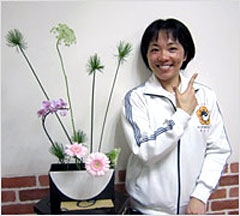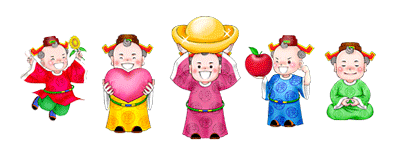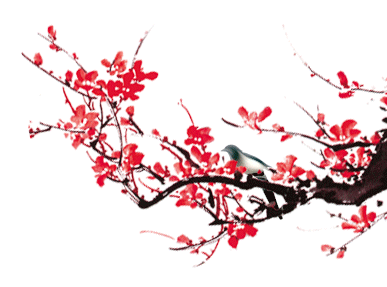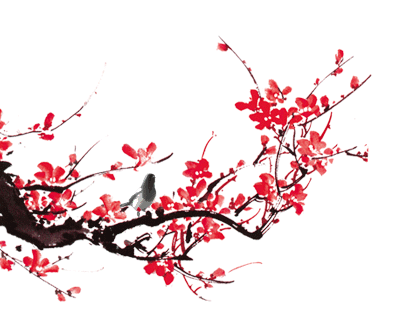Ms. Chang, Did You Miss Us?
Yu-Zhi Chang 2012-08-10

I used to be very serious and rigid; so much so that once while shopping, a clothing store salesperson suggested that I should reconsider the button-down shirt I was about to buy because it would make me look even more stern and hard to get along with. In addition, I always did what I was told to do in order to avoid getting into trouble with authority figures. Therefore, I was always considered an obedient kid and a teacher's pet by the elderly and teachers.
After becoming a teacher, it was natural to impose the same high expectations onto my students as was expected of me. Although I was considered to be a hard-working, responsible teacher, the relationship between my students and I was not at all close. If students didn't meet my expectations, I would be either preaching them to correct their conduct and to study harder or was fuming and blasting them with harsh criticisms. And I always thought, "Why can't you listen to me…" Even though I worked very hard to help my students; it was so hard to make it work!
There was one time, a severely disruptive fourth grade student made me cry. This boy was extremely stubborn, refusing to complete homework and frequently got in arguments with his classmates. He sometimes would get in fist fights with his classmates or vandalize classroom desks to express his frustration. When I confronted him on his inability to manage his emotions and adequately communicate, he only stared at me with those piercing cold eyes without any verbal response. In response to his hostile demeanor, I was overwhelmed with the feelings of defeat, anger, embarrassment and sadness which made me cry right there in front of him. Not even this phased him and that really marked an embarrassing moment in my teaching career! I was certain that this student was probably stunned by my emotional melt-down because of my own inapt emotion management skills and lack of wisdom to provide better guidance.
This low point occurred before I joined Tai Ji Men, where I have a kind, loving and very wise shifu (the grandmaster), who always treats my fellow Tai Ji Men sisters and brothers and myself with respect and equality regardless of gender, social-economical difference and racial diversity. He provides us with guidance and always is reminding us to keep improving ourselves. He is a master storyteller and likes to encourage dizi (students) to reach a higher self by telling us stories which often have deeper meanings to remind us of the importance of self-reflecting and taking real action. Shifu is always positive towards us dizi and firmly believes that all of us can become better through constant self-advancement. After being immersed in such a nurturing, positive environment by shifu, I learned to improve and cultivate the goodness within myself; and my life has become much more blissful and joyful. I've already started applying the wisdom that I've learned from my grandmaster to help my own students!
I am currently teaching 6th grade. My students are generally smart and talented, but often strong-headed; each has his/her unique personalities and at oftentimes make faulty decisions. After practicing at Tai Ji Men, I have found that I've become much more tolerant of students' shortcomings, allowing me to spend more time teaching and less time preaching.
In one particular incident, I realized that students were procrastinating on decorating the bulletin board that was to be included in a school-wide competition. With the deadline approaching, I did not yell at the students for their poor time management skills and jeopardizing our class' reputation. Being able to control temper in this circumstance would not have been possible had I not learned a better way from my shifu!
At that critical moment, I comprehended the valuable lesson that if I exploded, it would not benefit anyone. Not only would I hurt myself with the anger, but the students still wouldn't have learned ways to improve themselves, instead, they would only remember getting verbal punishment. Instead, I filled my mind with those wonderful achievements the students have achieved in the past, which reminded me that they they are still good and lovely, and the rage in my heart extinguished. I suggested that if they were having trouble they should openly request help from the class. To my surprise, the student in charge of the project was too shy to ask for help. Instead of anger, I was able to use wit, saying to him, "I did not ask you to propose to somebody; just open up!" The whole classroom burst into laughter, which at the same time alleviated the student from his nervousness and he was able to ask for the help he needed.
I had another student who was canny and a quick learner. Nevertheless, his penmanship was sloppy. Sometimes, I had to stop grading his homework because his handwriting was hardly readable. Perhaps since this student was getting ready to graduate, he was not paying as much attention to completing homework as he's used to be. On one occasion, I pointed out the problem to him with a lightened up tone, "Your homework will be much more likely to come back to haunt you because of your messy handwriting even after your graduation if you don't start improving." He chuckled a little bit, but he clearly understood the meaning behind my remarks.
I now know that it doesn't make sense to teach with anger, since it is much easier to provide guidance with wisdom and humor when educating students. Why dwell on students' mistakes when one can utilize positive thinking and emphasize students' good personal traits while appraising their performance?
Sometimes when I become irritable and angry in handling my students' problems, I will remind myself that since my purpose is for the students to grow in character and have better ways to deal with things and people I need to use positive encouragement and guidance to inspire their willingness for self-improvement. The result of my using positive reinforcement has made my teaching career easier, and the students more mature.
At this semester's PTA gathering, one male student gave me a flower as a token of appreciation; his gift really warmed my heart. I am very grateful for my shifu's guidance in helping me to remove my ill temper and for teaching me the importance of encouraging students with sincerity; to have a positive outlook when guiding students to correct improper behaviors, this wisdom has made my teaching career more enjoyable and heartfelt.



